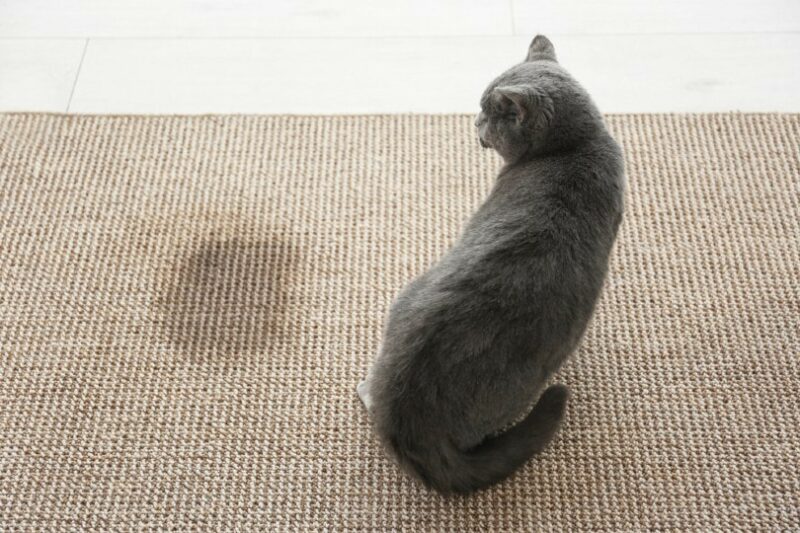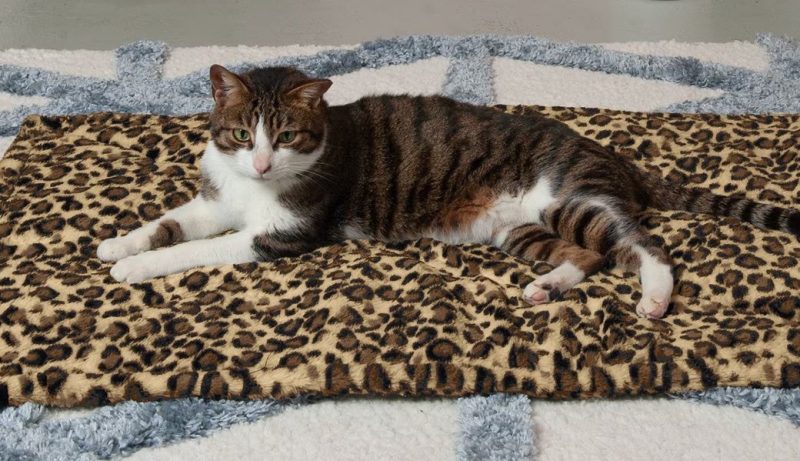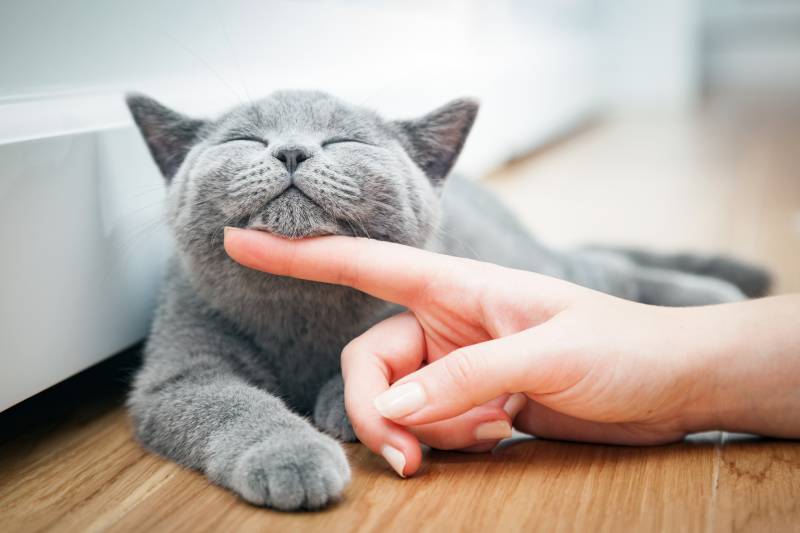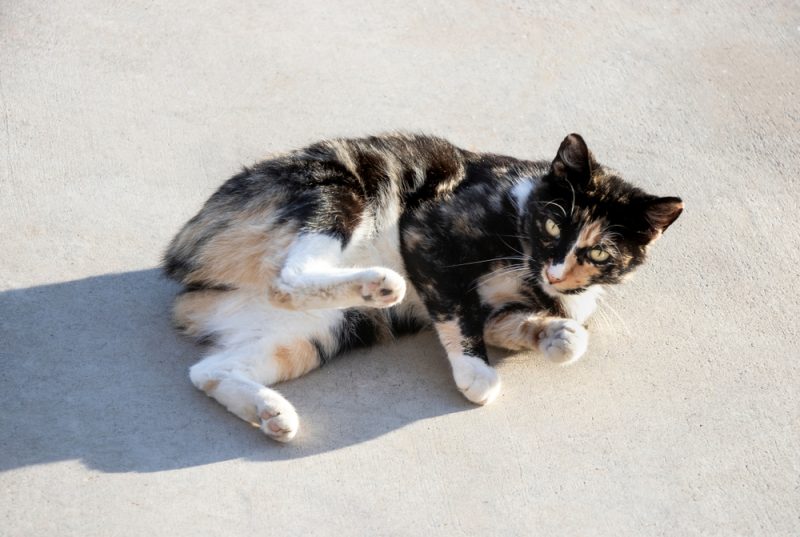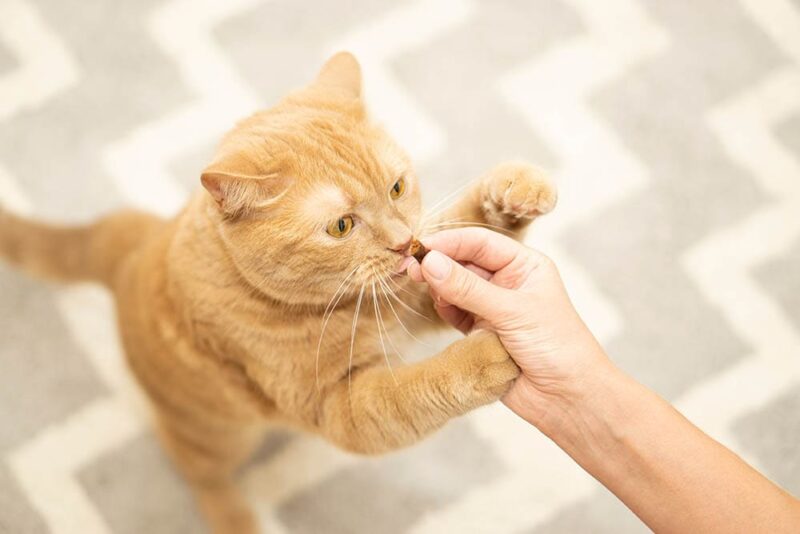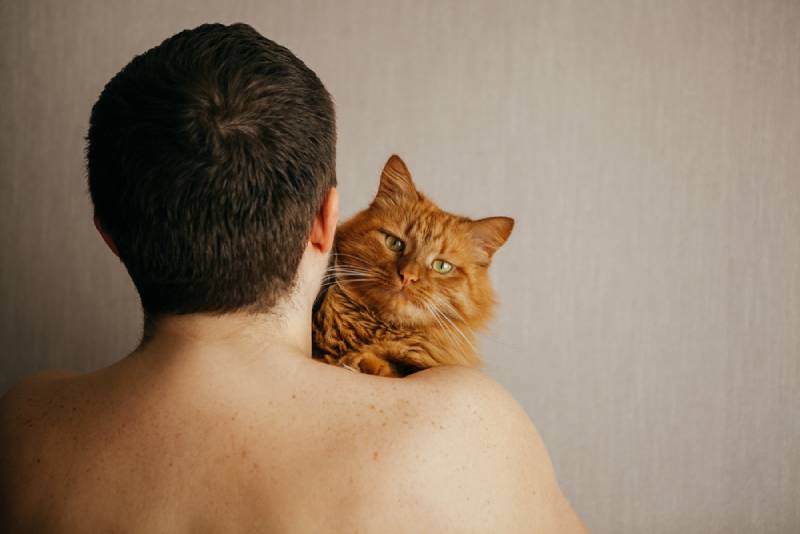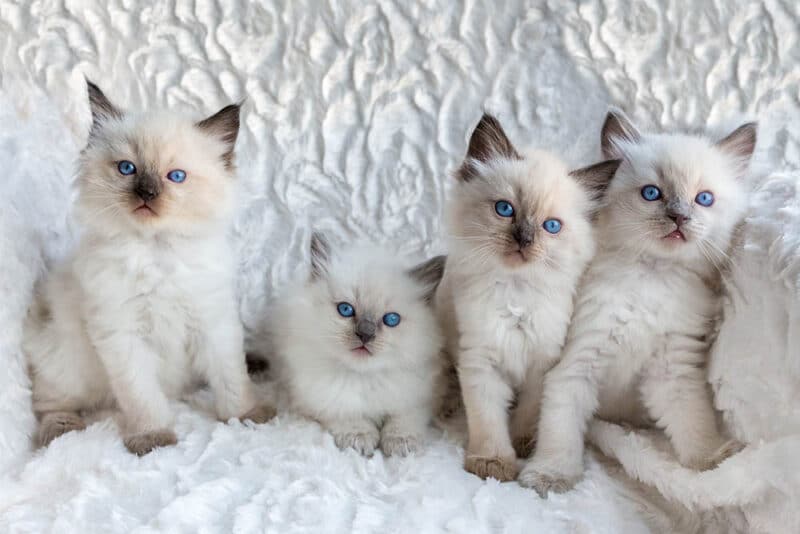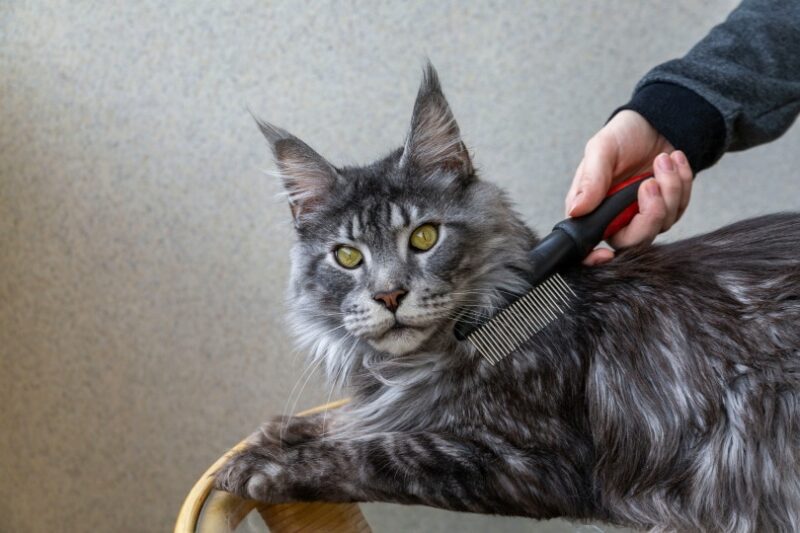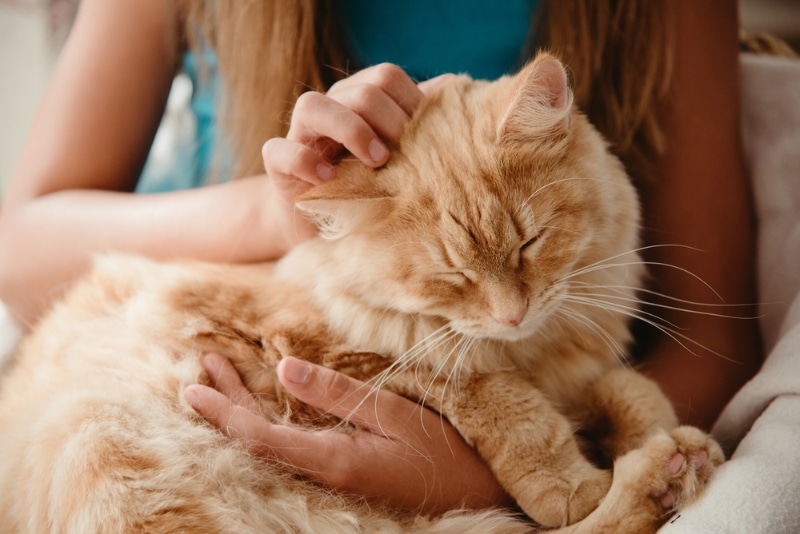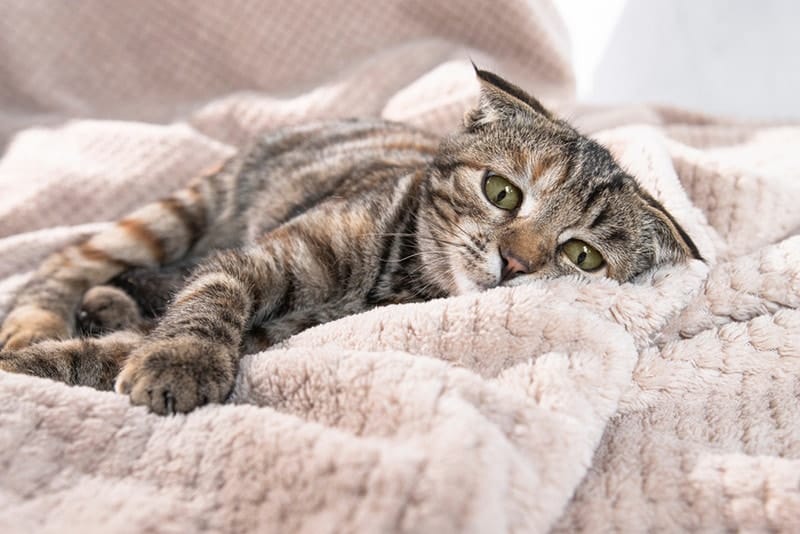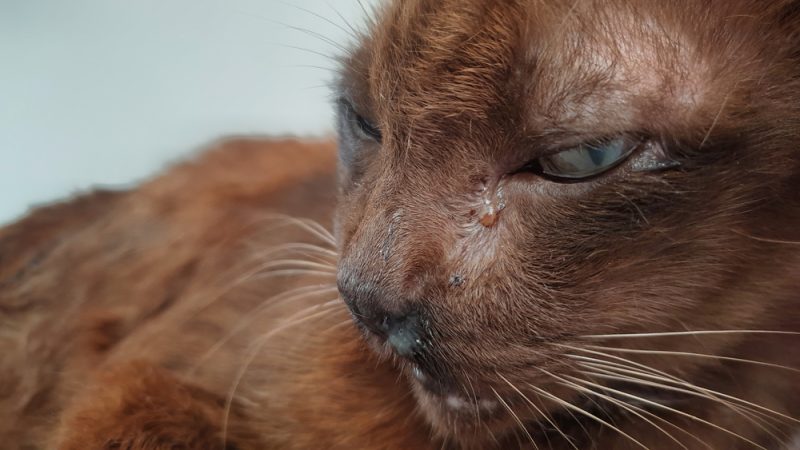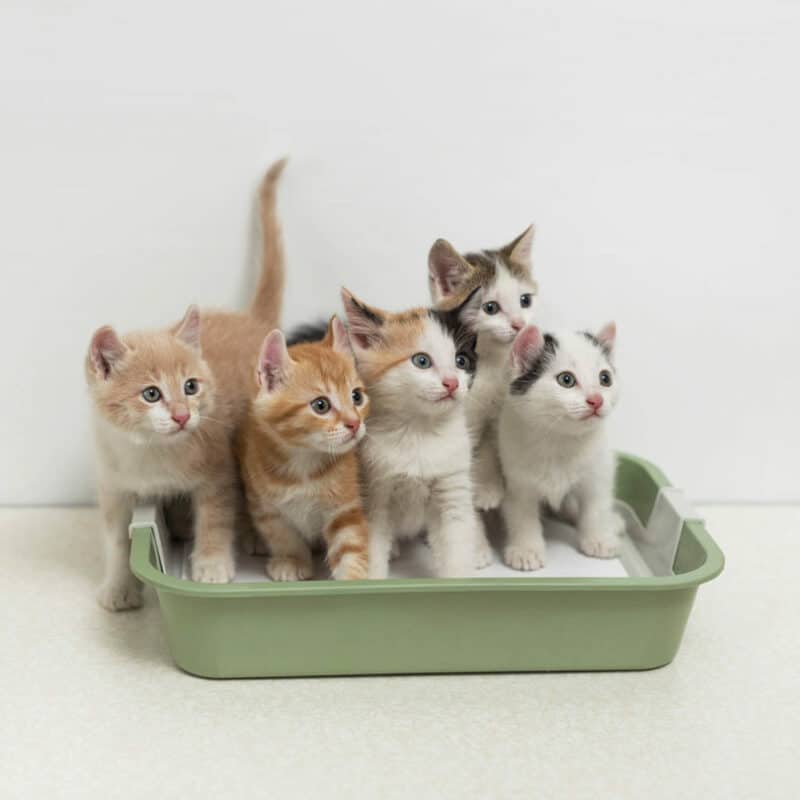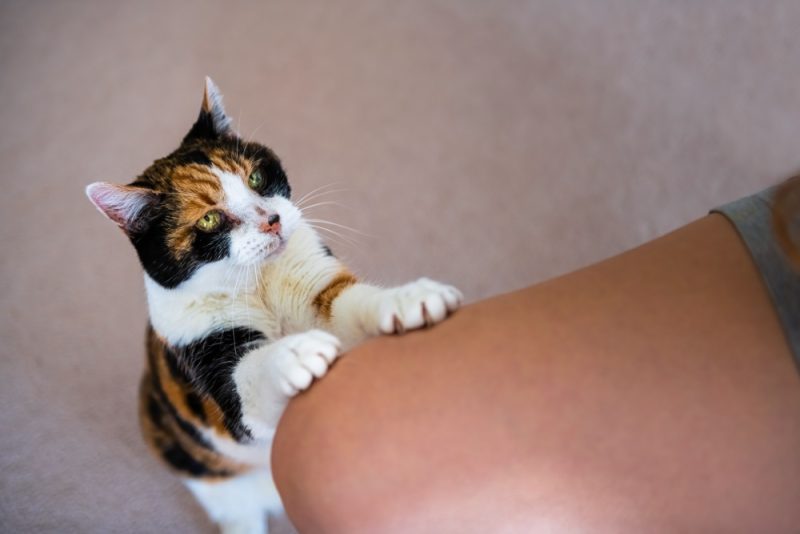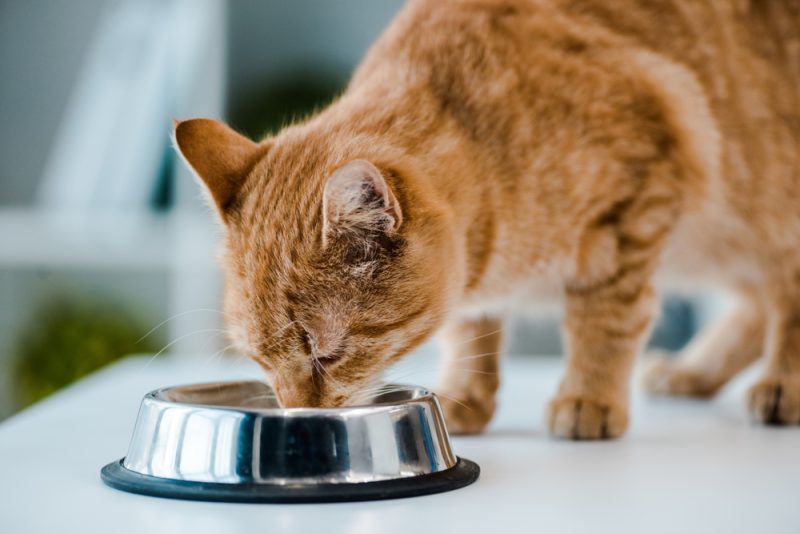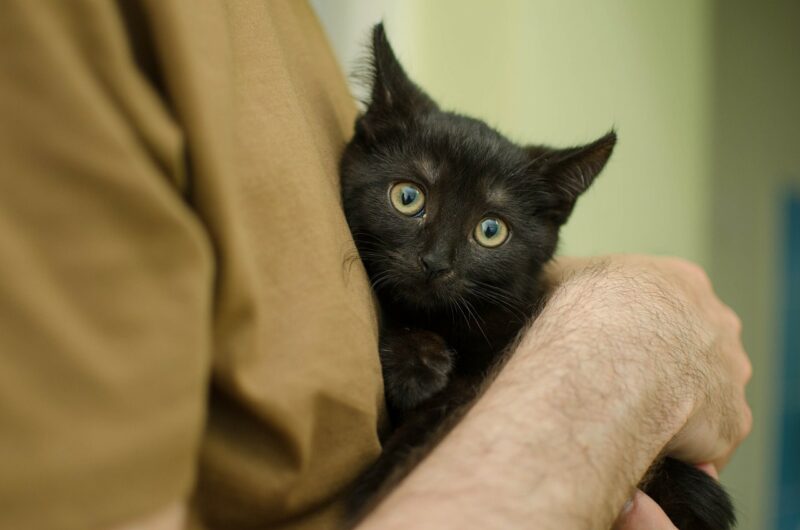In this article
Every cat owner can tell when their beloved pet has gone to the toilet inside, and you may be wondering “how long does cat pee smell last?” The acrid smell can viciously permeate just about any surface, even if you clean it up right away, leaving cat parents scrambling to try and find a way to neutralize the disgusting odor. There are many commercial products for cleaning up cat urine, but understanding why it smells so bad and how long it will continue to smell will help you choose the right product for your family.

How Long Does Cat Pee Smell Last?
This question has a different answer based on whether you’re referring to the ammonia smell or the uric acid smell. The ammonia smell of cat pee will go away shortly after you clean the litter box and shouldn’t stick around too long if everything is kept squeaky clean. However, uric acid has a half-life of 6 years when present in wood, cloth, or carpeting.
That means that uric acid will be present in a surface it’s been absorbed into for up to 6 years after it’s been absorbed. What’s more important is that uric acid resists most homemade cleaners. While homemade cleaning solutions can temporarily neutralize the odor of uric acid, one humid day can cause the uric acid to recrystallize and bring back the pungent smell.
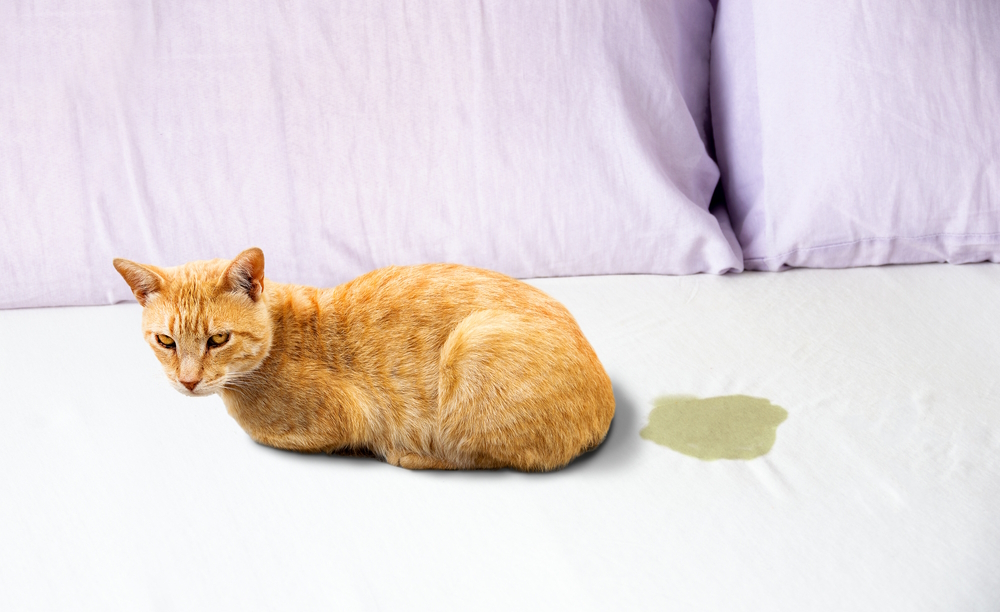
Why Does Cat Urine Odor Smell So Bad?
Cat urine comprises urea, uric acid, urobilin/urobilinogen, sodium, electrolytes, creatine, pheromones, and bacteria. The uric acid and urea are the culprits for the distinct, strong scent we associate with the litter box.
As the bacteria in the cat urine breaks down the urea — which is, by itself, odorless — it releases ammonia, which is where the powerful ammonia smell comes from. However, the acrid, tangy smell comes from the uric acid.

How to Permanently Neutralize Cat Urine Odor
The only way to permanently neutralize the odor of cat urine is to use an enzyme cleaner. Enzyme cleaners chemically break down uric acid to permanently reduce its odors.
Our Favorite Enzyme Cleaner
The Hepper Advanced Bio-Enzyme Pet Stain & Odor Eliminator Spray is our favorite enzyme cleaner out there. It permanently removes even the very worst kitty stains and smells, leaving your home fresh and clean! Click here to learn more about this amazing product and get yourself a bottle.
- ADVANCED ENZYMATIC CLEANER - Penetrates the most stubborn smells and stains at the deepest molecular...
- FOR ANY MESS, ON ANY SURFACE - This pet odor eliminator cleans your carpets, floors, furniture,...
- FRESH, NATURAL ODOR - Our unique formulation doesn't rely on dangerous or unpleasant chemical...
At Catster, we’ve admired Hepper for many years, and decided to take a controlling ownership interest so that we could benefit from the outstanding products of this cool cat company!
To properly use an enzyme cleaner, you need to thoroughly soak the affected area with the enzyme cleaner and then allow the area to air dry. Allowing the area to air dry is crucial since enzyme cleaners break the uric acid down into gasses that evaporate during the air-drying process.
If you don’t allow the area to air dry, the uric acid will not evaporate and may recrystallize in humid weather.
Can You Make an Enzyme Cleaner at Home?
Homemade cleaners for cat urine don’t have the chemical components needed to break down the uric acid. For this reason, homemade cat urine cleaners will usually only neutralize the odor temporarily, especially if you live in an area with humid weather.
Using a proper enzyme cleaner is recommended if you want to neutralize the odor of cat urine permanently. However, the best remedy for the smell of cat urine is prevention. Understanding why your cat is peeing outside of the litter box will help you treat the problem at its source.
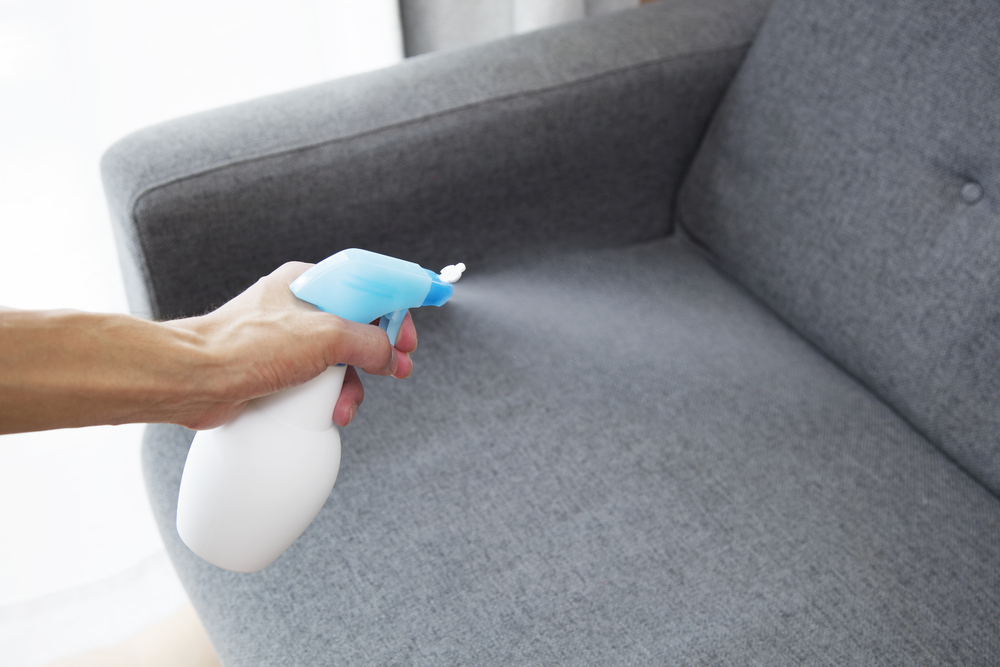
Why Is My Cat Peeing Outside of the Litter Box?
Cats peeing in inappropriate places is generally a sign of discontent or discomfort. The first step is taking your cat to the vet to ensure that no health problems are causing your cat to have accidents outside of the litter box. Additionally, quietly observe your cat’s litter box behavior from a distance. See if it appears that your cat is experiencing pain, frequent urination, or struggling to urinate.

Health Issues Which May Cause Inappropriate Urination
1. Feline Lower Urinary Tract Disease
Feline lower urinary tract disease (FLUTD) is a relatively common illness in cats. It can be brought on by stress, such as moving to a new home, the owner changing work schedules, or introducing a new animal to the household.
Signs of FLUTD include straining to urinate and pain when urinating indicated by crying or licking of the rear, and your cat may prefer to urinate on cool, smooth surfaces, like tile or in the bathtub.
This illness will usually resolve within a couple of weeks, especially with attentive veterinary care, and your veterinarian may take steps to prevent the symptoms from reoccurring.
If you need to speak with a vet but can't get to one, head over to PangoVet. It's an online service where you can talk to a vet online and get the advice you need for your pet — all at an affordable price!

2. Urinary Crystals
Urinary crystals are often referred to as a “false urinary tract infection” since the signs of the two diseases are very similar. Urinary crystals are relatively common in cats — certainly far more common than urinary tract infections — and can cause pain when urinating, urination that is either too frequent or too infrequent, straining to urinate, and accidents outside of the litter box.
Urinary crystals usually are part of a cat’s urine and are made of the minerals that cats pass. Issues occur when the minerals traditionally found in cat urine are too concentrated and there are too many crystals in the urine.
3. Urinary Tract Infection
Urinary tract infections are somewhat rare in cats. Urinary tract infections occur when bacteria get into the urethra and bladder and grow there. Usually, the urethra and bladder are cleaned out by the production and passing of urine, which is sterile. Still, when a bacterium grows in the bladder, it causes pain, urgency, and frequent urination.
Cats with urinary tract infections will urinate frequently but pass only small amounts of urine, lick at their rear ends to try and soothe the discomfort in the urethra, cry or whine while urinating, and may pass blood in their urine.
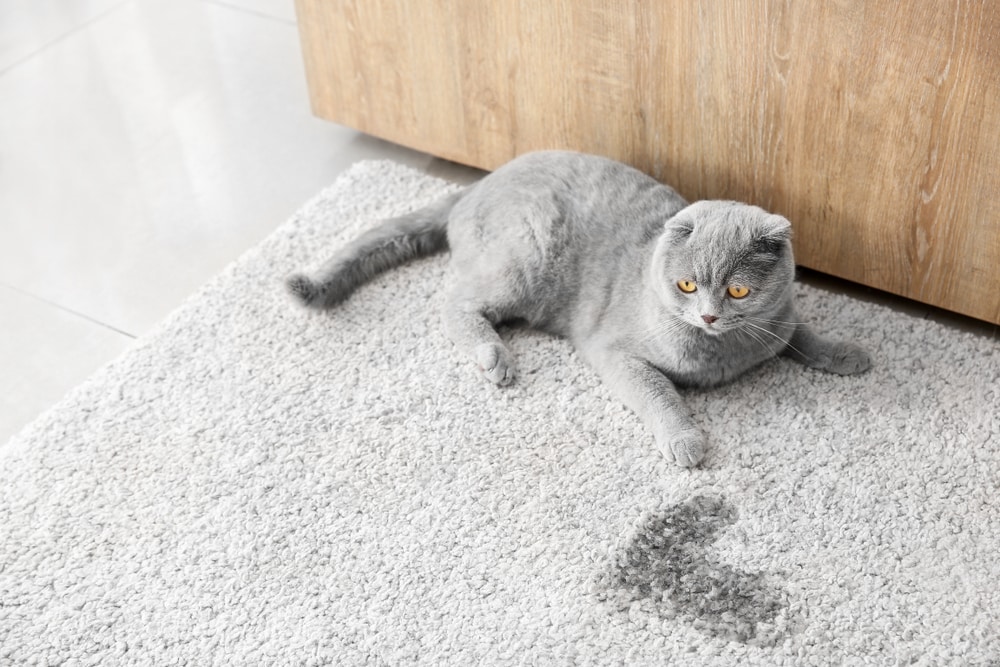

Final Thoughts
Cleaning up urine can be pretty gross to begin with, but if you don’t want the cat pee smell to last long it’s best to get on to it quickly. Luckily, cats generally won’t pee in inappropriate places unless they’re expressing discontent or ill, but that doesn’t mean anyone is immune to the wrath of their cat.
While there are plenty of ways you can get the smell of cat pee out of your furniture and floors, going straight to the source and finding out why your cat is peeing inappropriately should be the first order of business. Only your cat knows why they’re peeing outside the litter box, and prevention is the best medicine for the smell of cat pee!
See Also:
- Why Does Cat Urine Smell Like Ammonia? Vet Reviewed Reasons
- Will Steam Cleaning a Carpet Remove Cat Urine Smell? Top Sanitation Tips
Featured Image Credit: New Africa, Shutterstock
